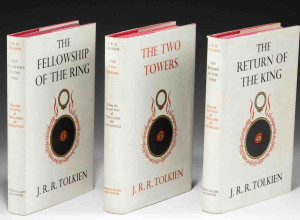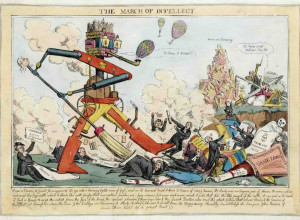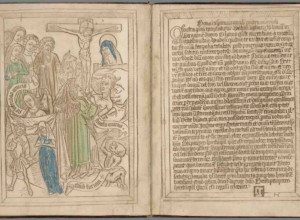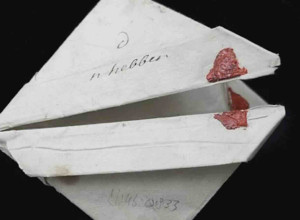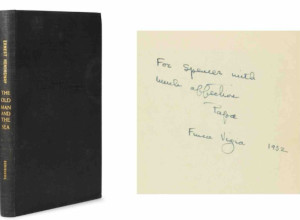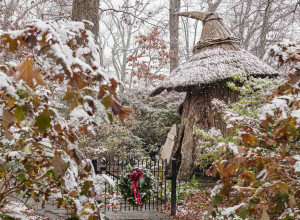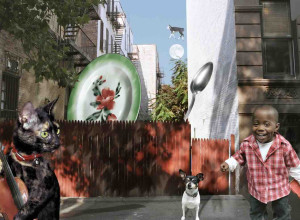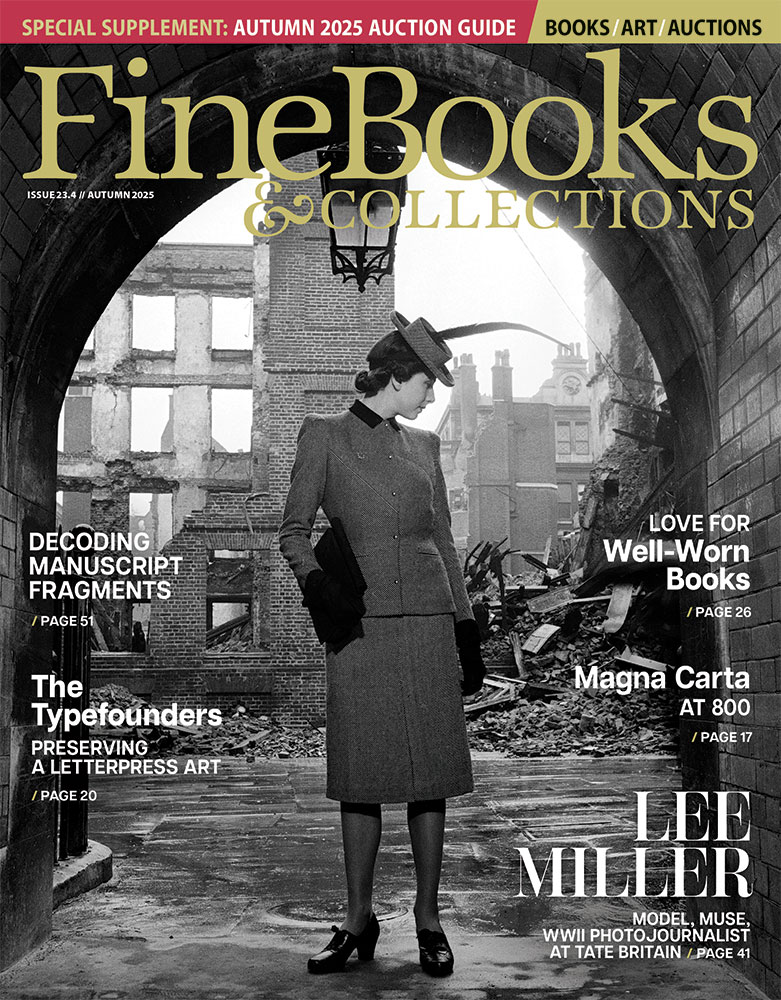Bright Young Librarians: Jordan Goffin
Our series profiling the next generation of special collections librarians continues today with Jordan Goffin, Special Collections Librarian with Providence Public Library in Providence, Rhode Island.
How did you get started in rare books?
For a long time I thought I wanted to pursue a PhD in medieval literature. Then one day I realized that even though I liked medieval literature, I liked a lot of other stuff just as much. I ended up at Indiana University, and after about one class at the Lilly Library I came to the conclusion that rare books librarianship was the perfect solution. I'd get to jump from medieval manuscripts to World War II posters to eighteenth-century nautical manuals in the space of a single day.
What is your role at your institution?
As the Special Collections Librarian, I oversee the collection (~40,000 books plus manuscripts, ephemera, etc.) and perform pretty much the full range of rare book librarian duties: I buy new materials for the collections, catalog books and process manuscript collections now and then, put together exhibitions and teach classes, work on digital projects, post to our blog, and work with researchers.
Tell us about your mapping project of the Rhode Island book trade:
When I first arrived in Rhode Island and started working at the RI Historical Society I knew I wanted to work on a project that would give me the chance to become more familiar with the state's book trade. I had originally intended to just put together a map or timeline for my own personal use, but one thing led to another and I decided to turn it into an online resource for anyone else interested in where and when people were producing and selling books in Rhode Island. As it stands now, the site tries to locate as many people and institutions involved in the state's eighteenth-century book trade as possible. It's been really gratifying to see people's interest in the topic, and there are some great new projects out there mapping the book trade around the world.
Have you worked at other institutions as well?
In addition to Providence Public Library and the RI Historical Society, I worked for about two years in Missoula as the Special Collections Librarian at the University of Montana. I've really enjoyed working at all three institutions.
Favorite rare book / ephemera that you've handled?
I'll start with the obligatory disclaimer that it's just not possible to pick one favorite (or ten, or twenty...). Here at PPL we have a pretty fantastic medieval mnemonic bible (previously belonging to Henry, Prince of Wales), so that's an immediate favorite. But I'm just as much drawn to the humbler items that probably say more about their times. Awhile back I came across a brief little pamphlet from the 1830s on the topic of bathing; it's a fun little tract, and a couple students have already made use of it. My favorite book this month is from our extensive collection of manuscript whaling logbooks. I was pulling together some items for a library tour scheduled for later in the morning. I decided to include a whaling logbook, so I took one off the shelf at random, opened it up and found, in addition to a record of the 1844 voyage, pages of encrypted text, a poem, and about forty pressed plant specimens, including still-fragrant spices.
What do you personally collect?
To be honest, I wouldn't really consider myself much of a collector. There are a couple authors whose books I try to keep up with, and some topics I collect sporadically (mostly relating to the history of the book), but I think I get most of my collecting compulsion sorted out during the workday.
What excites you about rare book librarianship?
My selfish answer to that question is that rare book librarianship is endlessly intellectually stimulating. If I pull a random book from a shelf, I don't know what it will be, but I know it'll be interesting. Then, when I'm feeling a little more altruistic, I remember that there are other people out there who might benefit from our materials as well, so there's the additional pleasure of seeing people do really creative things with the stuff in our collections. Right now, for instance, I know of at least half a dozen artists who are working on projects that make use of our collections. They're interacting with these historic objects in ways that are vibrant and new. And working in a public library means that we have people who come in just to see rare books for the fun of it, which I particularly enjoy seeing.
Thoughts on the future of special collections librarianship?
This seems like a great time to be involved with special collections librarianship. I think there's a widespread interest in physical, historic objects. Special collections libraries have always been the places people go to find answers to the questions nobody else has asked yet. And with the (potentially) extended reach we have thanks to the internet we can bring in new audiences to use our resources and ask those questions.
Any unusual or interesting collection at your library you'd like to draw our attention to?
I think the type of people who read this blog would really enjoy visiting and using our Daniel Berkeley Updike Collection on the History of Printing. It's a treasure trove of materials on the history of printing, particularly typography. As far as unusual is concerned, we have one of the only collections (as far as I know) of materials on the card game whist. It used to be immensely popular, so if anyone wants to find out how it worked, we're the place to visit.
Any upcoming exhibitions at your library?
We have one of the best collections on the typographer Giambattista Bodoni in the US, and I'm putting together an exhibition that will open in February. We'll also be launching a new annual prize for student type design and an online collection of book trade portraits, so it should be a fun event.






